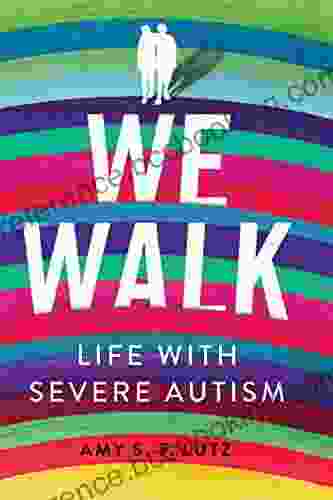Unveiling the Diverse Roles of Oxidative Stress in Health and Disease

Oxidative stress is a fundamental biological phenomenon involving an imbalance between the production of reactive oxygen species (ROS) and the body's antioxidant defenses. ROS are highly reactive molecules that can damage cellular components, including DNA, proteins, and lipids. While ROS are essential for various physiological processes, their excessive accumulation can lead to oxidative stress, contributing to a wide range of health conditions.
4.5 out of 5
| Language | : | English |
| File size | : | 23365 KB |
| Screen Reader | : | Supported |
| Print length | : | 328 pages |
Oxidative Stress and Health
In moderate amounts, ROS act as signaling molecules, promoting cell growth, differentiation, and immune function. They play a crucial role in defense against pathogens by activating the immune system and eliminating foreign invaders. Moreover, ROS are involved in the body's natural aging process, contributing to the gradual decline in cellular function and increased susceptibility to disease.
Oxidative Stress and Disease
Excessive or prolonged oxidative stress can result in cellular damage and dysfunction, contributing to the pathogenesis of various diseases.
- Aging: Oxidative stress is a significant factor in aging, leading to the accumulation of damaged cellular components and ultimately contributing to the decline in organ function and overall health.
- Cancer: High levels of ROS can promote tumor growth and metastasis by inducing DNA damage, stimulating angiogenesis, and suppressing the immune system.
- Neurodegenerative disFree Downloads: Oxidative stress has been implicated in the development of neurodegenerative diseases such as Alzheimer's and Parkinson's, where it contributes to neuronal damage and loss of function.
- Cardiovascular disease: Oxidative stress plays a role in the development of atherosclerosis, heart failure, and other cardiovascular diseases by damaging blood vessels and promoting inflammation.
- Inflammation: Oxidative stress can trigger and perpetuate inflammation by activating signaling pathways that release inflammatory mediators.
Antioxidants and Oxidative Stress
The body's antioxidant defense system counteracts oxidative stress by neutralizing ROS and repairing damaged molecules. Antioxidants can be divided into two main groups:
- Enzymatic antioxidants: These enzymes, such as superoxide dismutase, catalase, and glutathione peroxidase, directly scavenge or detoxify ROS.
- Non-enzymatic antioxidants: These compounds, including vitamins C and E, carotenoids, and polyphenols, indirectly counteract oxidative stress by donating electrons to neutralize ROS.
A balance between ROS production and antioxidant defenses is crucial for maintaining cellular and overall health.
Modulating Oxidative Stress for Health
Understanding the role of oxidative stress in disease provides opportunities for developing therapeutic strategies aimed at modulating oxidative stress levels.
- Antioxidant supplementation: Increasing antioxidant intake through diet or supplements may help reduce oxidative stress and protect against certain diseases.
- Lifestyle modifications: Regular exercise, a healthy diet, and stress management techniques can help reduce oxidative stress and improve overall health.
- Pharmacological interventions: In certain disease conditions, specific drugs or supplements may be used to target oxidative stress pathways.
Oxidative stress plays a complex and multifaceted role in health and disease. Understanding the diverse effects of oxidative stress is essential for developing targeted therapies and promoting overall well-being. By modulating oxidative stress levels through lifestyle modifications, antioxidant supplementation, and innovative treatments, we can harness its beneficial aspects while mitigating its harmful effects, paving the way for a healthier future.
Reference:
"Diverse Roles of Oxidative Stress in Health and Disease" by Rizwan Hamid et al. (book chapter in "Oxidative Stress and Disease 47")
4.5 out of 5
| Language | : | English |
| File size | : | 23365 KB |
| Screen Reader | : | Supported |
| Print length | : | 328 pages |
Do you want to contribute by writing guest posts on this blog?
Please contact us and send us a resume of previous articles that you have written.
 Book
Book Novel
Novel Page
Page Chapter
Chapter Text
Text Story
Story Genre
Genre Reader
Reader Library
Library Paperback
Paperback E-book
E-book Magazine
Magazine Newspaper
Newspaper Paragraph
Paragraph Sentence
Sentence Bookmark
Bookmark Shelf
Shelf Glossary
Glossary Bibliography
Bibliography Foreword
Foreword Preface
Preface Synopsis
Synopsis Annotation
Annotation Footnote
Footnote Manuscript
Manuscript Scroll
Scroll Codex
Codex Tome
Tome Bestseller
Bestseller Classics
Classics Library card
Library card Narrative
Narrative Biography
Biography Autobiography
Autobiography Memoir
Memoir Reference
Reference Encyclopedia
Encyclopedia Alexei Yurchak
Alexei Yurchak Alexis Averbuck
Alexis Averbuck Amy D Morse
Amy D Morse Andrew Fisher
Andrew Fisher Amy B Zegart
Amy B Zegart Andres Lopez
Andres Lopez Amrit Pal Tiwana
Amrit Pal Tiwana Andrej Spec
Andrej Spec Alexandra Witze
Alexandra Witze Andrie De Vries
Andrie De Vries Alexandra Wolff
Alexandra Wolff Andrew J Kirkendall
Andrew J Kirkendall Alison Freer
Alison Freer Alina A Dumitrescu
Alina A Dumitrescu Andrew Neiderman
Andrew Neiderman Aline Cristina Moreira
Aline Cristina Moreira Ananya Roy
Ananya Roy Alfred Edersheim
Alfred Edersheim Amy Lucas
Amy Lucas Alicia Kelley
Alicia Kelley
Light bulbAdvertise smarter! Our strategic ad space ensures maximum exposure. Reserve your spot today!

 Roland HayesLife with Severe Autism: Unraveling the Culture and Politics of Health Care...
Roland HayesLife with Severe Autism: Unraveling the Culture and Politics of Health Care... Martin CoxFollow ·8.8k
Martin CoxFollow ·8.8k Barry BryantFollow ·11.3k
Barry BryantFollow ·11.3k Jordan BlairFollow ·3.5k
Jordan BlairFollow ·3.5k Mario Vargas LlosaFollow ·11k
Mario Vargas LlosaFollow ·11k Yasunari KawabataFollow ·19.6k
Yasunari KawabataFollow ·19.6k Sam CarterFollow ·11k
Sam CarterFollow ·11k Carter HayesFollow ·2k
Carter HayesFollow ·2k Vincent MitchellFollow ·19.5k
Vincent MitchellFollow ·19.5k

 Julio Cortázar
Julio CortázarIf You Don't Do Politics, Politics Will Do You
Uncover the Hidden Power in Everyday Life In...

 Ivan Turner
Ivan TurnerThe Edge of Physics: Unraveling the Extraordinary...
What is the nature of...

 Diego Blair
Diego BlairAn Intuitive Guide For Using And Interpreting Linear...
Linear models...

 Oscar Wilde
Oscar WildeThrough Two Doors At Once: Unveiling the Enigmatic World...
Prepare to delve into the captivating realm of...

 Darrell Powell
Darrell PowellWomen Athletes in History: An Inspiring Gift for Teenage...
Unveiling the Extraordinary Stories of Female...
4.5 out of 5
| Language | : | English |
| File size | : | 23365 KB |
| Screen Reader | : | Supported |
| Print length | : | 328 pages |












